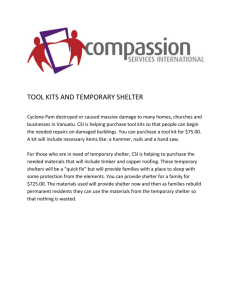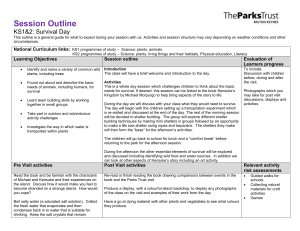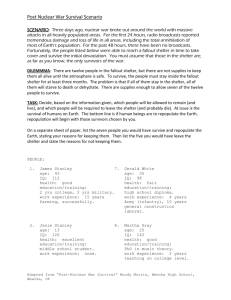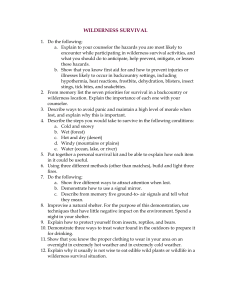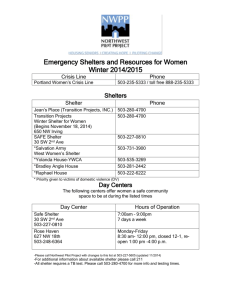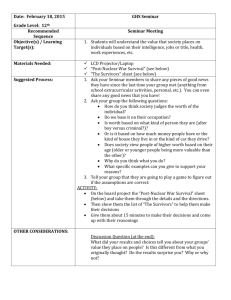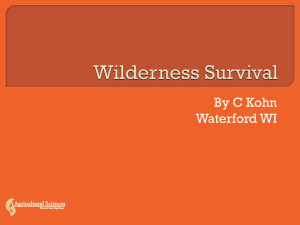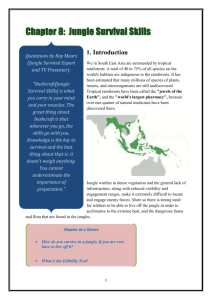5 basic survival skills
advertisement
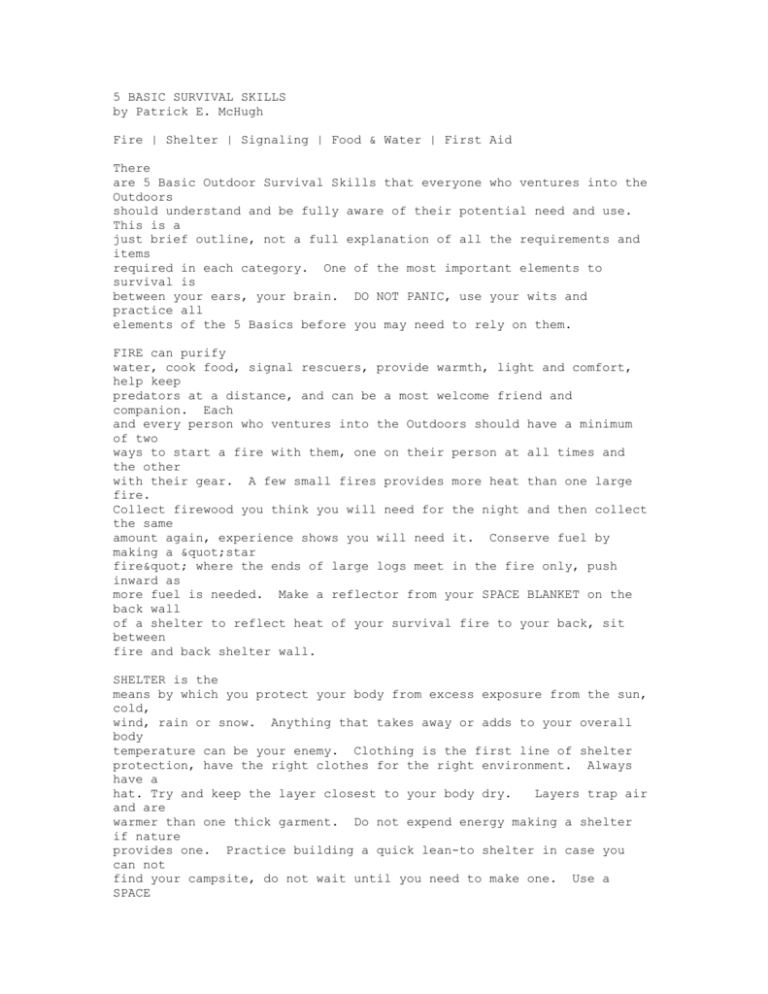
5 BASIC SURVIVAL SKILLS by Patrick E. McHugh Fire | Shelter | Signaling | Food & Water | First Aid There are 5 Basic Outdoor Survival Skills that everyone who ventures into the Outdoors should understand and be fully aware of their potential need and use. This is a just brief outline, not a full explanation of all the requirements and items required in each category. One of the most important elements to survival is between your ears, your brain. DO NOT PANIC, use your wits and practice all elements of the 5 Basics before you may need to rely on them. FIRE can purify water, cook food, signal rescuers, provide warmth, light and comfort, help keep predators at a distance, and can be a most welcome friend and companion. Each and every person who ventures into the Outdoors should have a minimum of two ways to start a fire with them, one on their person at all times and the other with their gear. A few small fires provides more heat than one large fire. Collect firewood you think you will need for the night and then collect the same amount again, experience shows you will need it. Conserve fuel by making a "star fire" where the ends of large logs meet in the fire only, push inward as more fuel is needed. Make a reflector from your SPACE BLANKET on the back wall of a shelter to reflect heat of your survival fire to your back, sit between fire and back shelter wall. SHELTER is the means by which you protect your body from excess exposure from the sun, cold, wind, rain or snow. Anything that takes away or adds to your overall body temperature can be your enemy. Clothing is the first line of shelter protection, have the right clothes for the right environment. Always have a hat. Try and keep the layer closest to your body dry. Layers trap air and are warmer than one thick garment. Do not expend energy making a shelter if nature provides one. Practice building a quick lean-to shelter in case you can not find your campsite, do not wait until you need to make one. Use a SPACE BLANKET to prevent dampness or to insulate your shelter or to wrap yourself up in a sitting or squat position to concentrate your body core heat. SIGNALING is having available the means and ability to alert any and all potential rescuers that you are in need of HELP. Fire, flashing light, bright color markers, flags, mirrors, whistles all will help you be found. Three fires in a triangular form are a recognized distress signal. Carefully bank your signal fires to prevent igniting surrounding area. Use regular signal mirrors only when you can see a plane, or people in the distance. Use EMERGENCY STROBE light at night to help attract attention from those that may be in the area. Make smoky fire with organic material over the fire during the day to attract attention. Lay out ground to air signal in open field, S.O.S. from rocks, logs or colored clothing, whatever will be seen against the background. Most search and rescue parties use aircraft as a primary method of sighting. FOOD/WATER are vital towards your survival. Ration your sweat not your water intake. Try to drink only in the cool of the evening. You can live up to three days without water. DO NOT eat plants you do not know. Never drink urine. Always assume that you will need extra food and water when you plan your trip. Pack energy bars and candy in your pockets at all time, just in case. If possible boil all water 10 minutes plus one minute for every 1000 feet above sea level. Strain water through your handkerchief to remove large particles. Try to drink only in the cool of the evening. Never wait until you are without water to collect it. Have some poly zip bags to collect and store water. Never eat any wild berries that you are not sure of what they are. You can catch rain water in your SPACE BLANKET by laying it out in a trench. FIRST AID is not just the basic medical needs, it is the primary way in which you act to survive. DO NOT PANIC, remain calm and do what you have to do to take care of YOU. STOP means Sit, Think, Observe, and Plan. It is the most intelligent thing you can do when you realize you are lost or stranded. The most important element is to keep your brain functioning rationally, this is basic first aid for survival. Analyze your needs before every trip, create a medical checklist and carry a small personal kit with you at all times. Most survival situations require only dressing for small cuts, bruises and personal medication needs, make sure you know what you have with you and how to use it. Do not over pack, pack what you feel you will need to carry with you at all times. Concentrate on being found, pack a picture of your family in with your gear to remind you of the reasons to remain calm and to survive. Prevent hypothermia by insulating yourself in a SPACE BLANKET.

